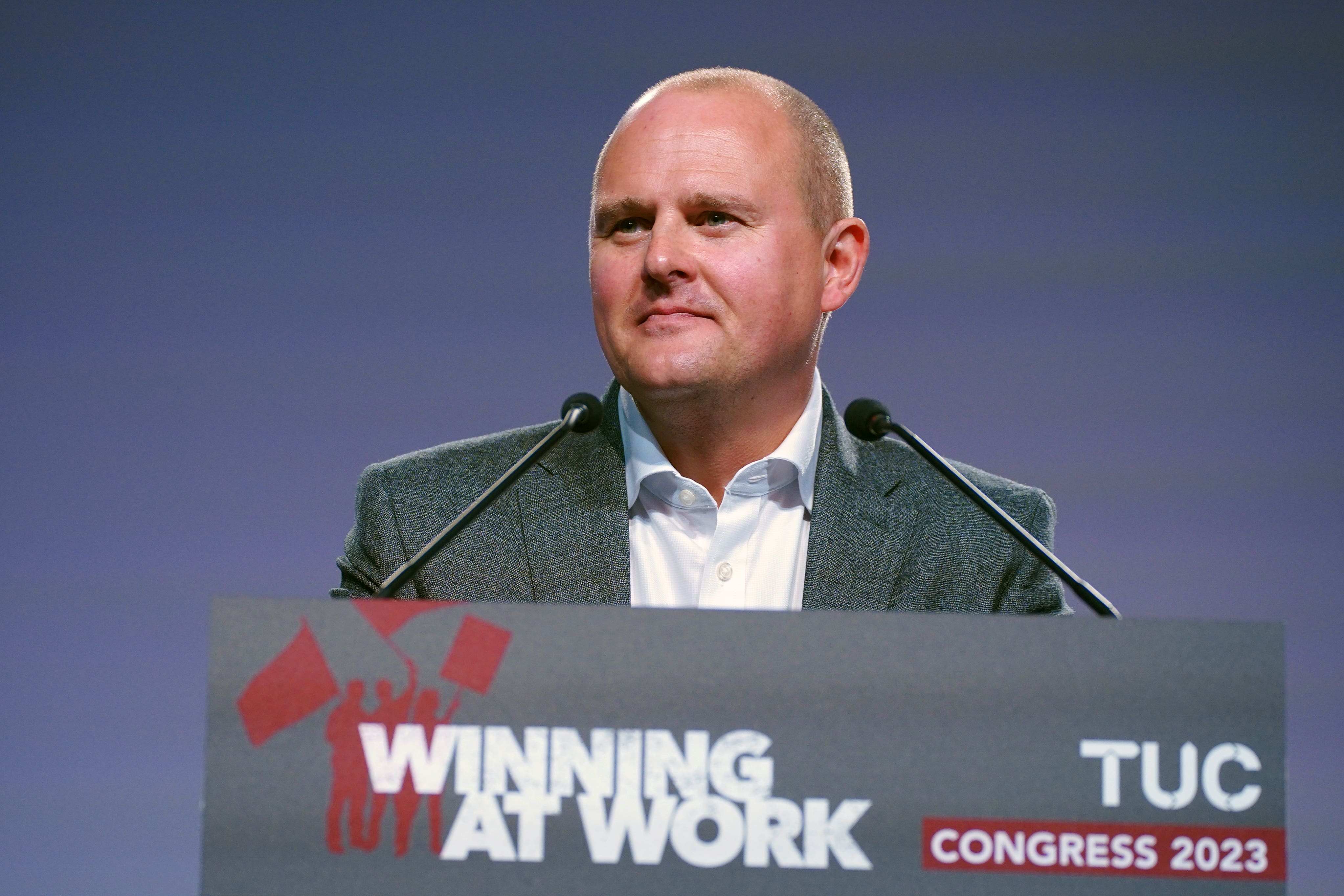Unions look to improved employment relations under a Labour government
Second anniversary of strikes which have seen hundreds of thousands of workers take industrial action.

Union leaders have accused the Conservative Government of misjudging the public mood over strikes following an unprecedented wave of industrial action stretching back two years.
They expressed hopes that an incoming Labour government will improve employment relations amid ongoing walkouts by workers.
Hundreds of thousands of workers, including nurses, junior doctors, teachers, train drivers, barristers, civil servants, council staff and university lecturers, have taken industrial action since June 2022, seen as the start of the period of industrial unrest.
Many of the disputes were sparked by rising inflation and the impact of the cost-of-living crisis.
Disputes remain unresolved, including those involving train drivers, seafarers, jobcentre security guards, and junior doctors, who will be on strike again in England for five days from June 27.
Ministers thought they could turn the public against workers going on strike, but the complete opposite happened
Union leaders blame the Conservative Government for many of the disputes, especially in the public sector, where pay has failed to keep pace with inflation for more than a decade.
Paul Nowak, general secretary of the TUC, believes the Government completely misjudged the mood of workers and the public.
“Ministers thought they could turn the public against workers going on strike, but the complete opposite happened,” he told the PA news agency.
“The Government’s response to the industrial action was to bring in draconian legislation on minimum service levels during strikes, which no employer has been reckless enough to use.
“We need proper, grown-up industrial relations, and I believe a Labour government will be committed to working with unions to repair public services.”
Mr Nowak accused ministers of engaging in “culture wars” against workers such as civil servants and said they have no real concept of the value of public services.
Mick Lynch, general secretary of the Rail, Maritime and Transport (RMT) union, accused the Government of being behind the many disputes in the railway industry.
He told PA: “They could have settled disputes more quickly if they had allowed unions to get on with the job of engaging in industrial relations.”
Mr Lynch said public sector workers will be looking for quick settlements under a Labour government which will “calm things down”.
The economic chaos of the Tory Government has been the background to the disputes
He added: “Labour’s New Deal for Workers will be a first step, and we will keep pressing them to deliver a working-class agenda and unshackle unions in the workplace.
Gary Smith, general secretary of the GMB, revealed that his union has held 1,800 industrial action ballots in the last year, involving 75,000 workers, which highlights the level of unrest.
“The economic chaos of the Tory Government has been the background to the disputes because it has had a huge impact on workplaces across the country,” he told PA.
“There has also been a new era of trade union leaders and activists.
“Labour’s New Deal will be a very powerful signal of the desire to involve working people and give them a voice after the Government and employers have been refusing to listen to legitimate concerns.
“I hope that having ministers prepared to engage and listen to our concerns will be a big help.”
Mr Smith also believes the Conservative Government misjudged the public mood, saying: “They believed people would be hostile to strikes, but the opposite was true. Post-Covid, people valued frontline workers and there was huge support for ambulance staff, refuse collection workers and others who have been on strike.”
Two years on from the summer of discontent, workers across the country have made big gains, and our members have helped lead the way
University and College Union general secretary Jo Grady said: “Two years on from the summer of discontent, workers across the country have made big gains, and our members have helped lead the way.
“The University and College Union mobilised like never before, winning not one but two national ballots, and forcing universities to agree to restore our retirement benefits in full. This is the biggest pensions win in British trade union history.
“Meanwhile, in further education, we took strike action for fair pay across England, winning pay awards of up to 12% at over 60 colleges.
“We now need to keep up the fight and make sure workers everywhere get their fair share.”
Kevin Hollinrake, small business minister, said: “The Labour manifesto makes clear that a Labour government would hand over power to the unions, leading to a massive increase in taxes to accommodate outlandish trade union pay demands.
“Working families and businesses would pay the cost of Labour’s surrender to their union paymasters, forced to suffer higher taxes and lower growth while train drivers’ wages grow ever larger.
“Only Rishi Sunak and the Conservatives will take the bold action needed to cut tax and control public sector wages.”
Bookmark popover
Removed from bookmarks